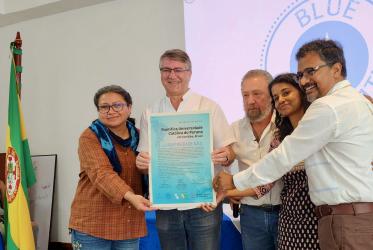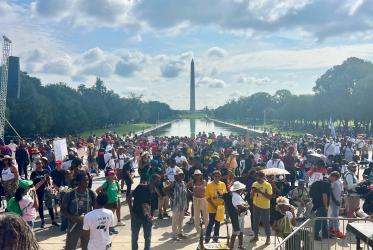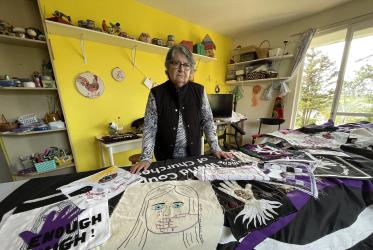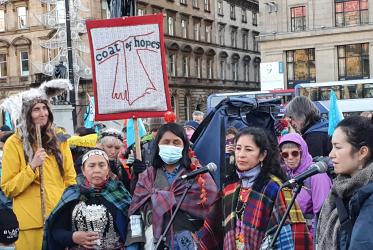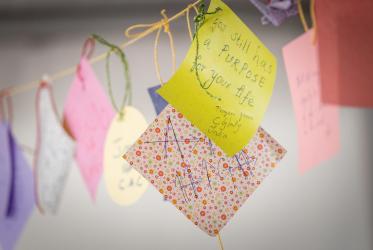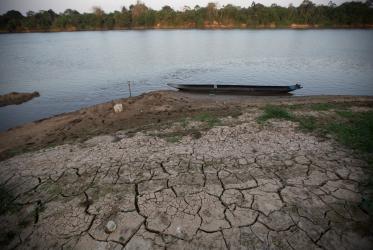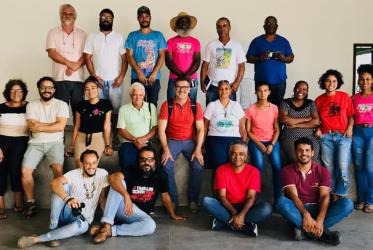Displaying 1 - 20 of 84
Churches march in New York City to declare no faith in fossil fuels
18 September 2023
WCC stands in solidarity with victims of major flood in Brazil
17 February 2022
“Bathroom ministry” for the homeless
14 December 2021
Brazilian ecumenical water network launched
29 July 2021
Pulling together for a living River Pardo
02 July 2021
